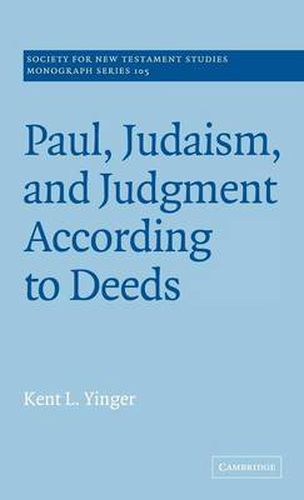Readings Newsletter
Become a Readings Member to make your shopping experience even easier.
Sign in or sign up for free!
You’re not far away from qualifying for FREE standard shipping within Australia
You’ve qualified for FREE standard shipping within Australia
The cart is loading…






Why does ‘judgment according to deeds’ produce no discernible theological tension for Paul, the apostle of justification by faith? For students of his writings, paradox, incoherence, or eschatological tension come more readily to mind. Paul felt no such theological tension because there was none - neither within his own soteriology, nor in that of the Judaism from which he learned to speak of ‘judgment according to deeds’. For both, salvation is wholly by God’s grace and the saved will be repaid (i.e., saved or condemned) in accordance with what they have done. Thus, Paul can promise eternal life to those who ‘do good’, while threatening wrath upon the disobedient (Rom 2:6-11), and without undermining justification by faith. This thorough examination of second temple and pauline texts interacts with recent discussions of ‘covenantal nomism’, justification, and the ‘new perspective’ on Paul to explore the Jewishness of the apostle’s theology.
$9.00 standard shipping within Australia
FREE standard shipping within Australia for orders over $100.00
Express & International shipping calculated at checkout
Why does ‘judgment according to deeds’ produce no discernible theological tension for Paul, the apostle of justification by faith? For students of his writings, paradox, incoherence, or eschatological tension come more readily to mind. Paul felt no such theological tension because there was none - neither within his own soteriology, nor in that of the Judaism from which he learned to speak of ‘judgment according to deeds’. For both, salvation is wholly by God’s grace and the saved will be repaid (i.e., saved or condemned) in accordance with what they have done. Thus, Paul can promise eternal life to those who ‘do good’, while threatening wrath upon the disobedient (Rom 2:6-11), and without undermining justification by faith. This thorough examination of second temple and pauline texts interacts with recent discussions of ‘covenantal nomism’, justification, and the ‘new perspective’ on Paul to explore the Jewishness of the apostle’s theology.